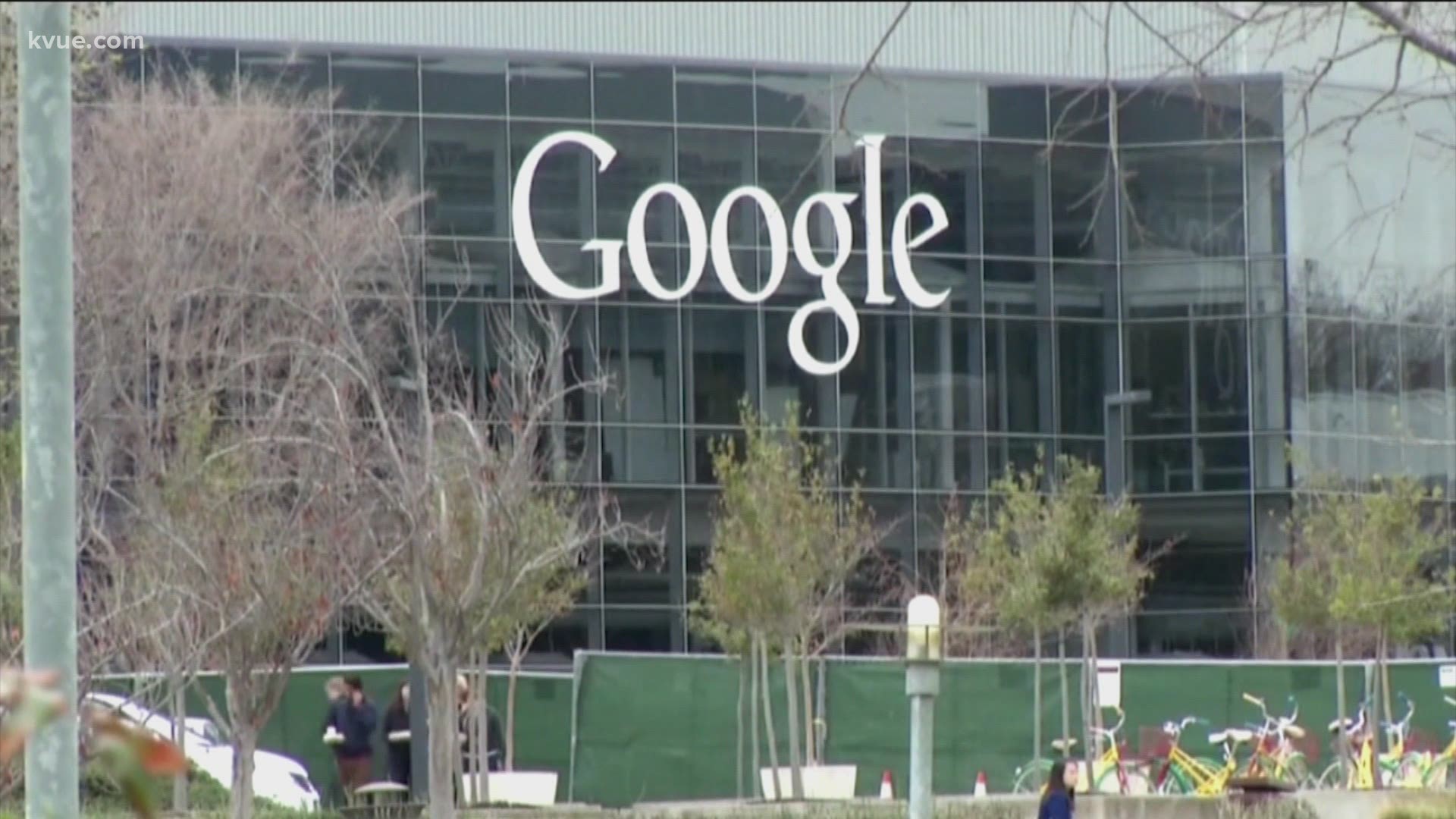(Texas Tribune) Texas is leading a 10-state lawsuit against the internet giant Google, accusing the company of anti-competitive conduct in advertising.
In a buzzy video posted to social media Wednesday afternoon, Attorney General Ken Paxton — who is struggling to bounce back from a nadir in his political career — announced that Texas and nine other states are challenging Google’s advertising practices, which he called anti-competitive. The lawsuit, filed in federal court in Texas, claims Google “uses its powerful position on every side of the online display markets to unlawfully exclude competition.”
“It isn't fair that Google effectively eliminated its competition and crowned itself the head of online advertising,” Paxton said in the video. “Let me put it this way: If the free market were a baseball game, Google positioned itself as the pitcher, the batter and the umpire.”
Google uses its position atop the online ad marketplace to extract a “tax” on websites that rely on ad sales for their revenue, the lawsuit alleges. The attorneys general also claim Google forged an unlawful agreement with Facebook — its largest potential rival — to “manipulate advertising auctions.” Citing a U.S. Supreme Court warning of “antitrust evils,” the states say in their lawsuit that “this litigation will establish that Google is guilty of such antitrust evils, and it seeks to ensure that Google won’t be evil anymore.”
The suit has been anticipated since a bipartisan group of state attorneys general last year announced an investigation into the tech giants Google and Facebook. And it comes on the heels of another major federal lawsuit against Facebook, which Texas joined but is not leading, in which the Federal Trade Commission alleges the company abuses its market power to crush competition. Texas also joined an October U.S. Department of Justice lawsuit against Google, that case focused on allegations that the company violated antitrust laws.
The Texas case, unlike some earlier tech lawsuits, includes only Republican attorneys general.
The tech giant promised to fight the case, a spokesperson for Google saying, “Attorney General Paxton’s ad tech claims are meritless, yet he’s gone ahead in spite of all the facts.”
“We will strongly defend ourselves from his baseless claims in court,” the spokesperson added.
Taken together, the recent spate of lawsuits represent a new, broad-based government onslaught against companies that for years seemed untouchable. Texas is positioning itself among the front of the pack of states, a suitable role given the state’s comparatively large size and greater legal firepower, and its leaders’ affection for the limelight. The Texas attorney general’s office employs about 4,000 people, including some 800 attorneys, making it one of the largest such offices in the country.
Texas has also hired outside attorneys from Houston, Chicago and Washington, D.C. to lead the case. A spokesperson for the agency did not answer questions about how much they will be paid.
The sprawling Texas attorney general’s office has suffered over the last two months as Paxton, its leader, faces new criminal allegations, a reported FBI investigation, and a massive scandal that has cost him political allies and many of his hand-picked senior staff. The agency has hemorrhaged its top deputies in the wake of the new accusations against Paxton, who has since 2015 been under a state indictment for felony securities fraud. One of the top aides who left this fall was leading the Google probe for the agency.
In late September and October, eight of Paxton’s top aides told authorities they believed he had broken the law in using the resources of the agency to serve the interests of a political donor. The whistleblowers say — in allegations that are documented in media reports and court filings — that Paxton took steps from weighing in on open records requests on behalf of the donor, Nate Paul, to the highly unusual move of intervening in a lawsuit between Paul and an Austin charity.
Since leveling the accusations, five of the whistleblowers have been fired and three have quit. Four are currently suing Paxton for retaliation including wrongful termination.
Paxton has dismissed their claims as “false,” including in court this week in a case that could cost taxpayers hundreds of thousands of dollars, and rejected the whistleblowers as “rogue employees.”
This story originally appeared in The Texas Tribune.
PEOPLE ARE ALSO READING:

